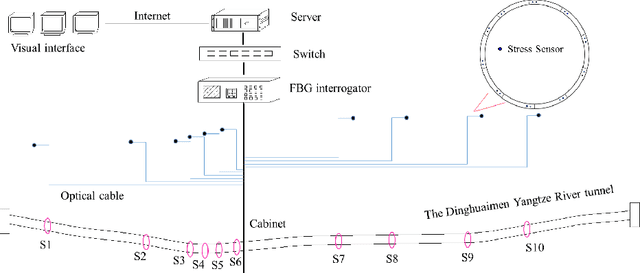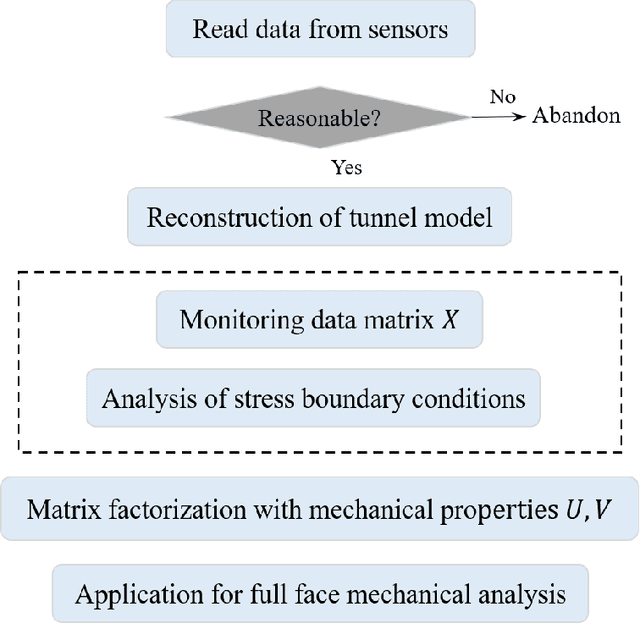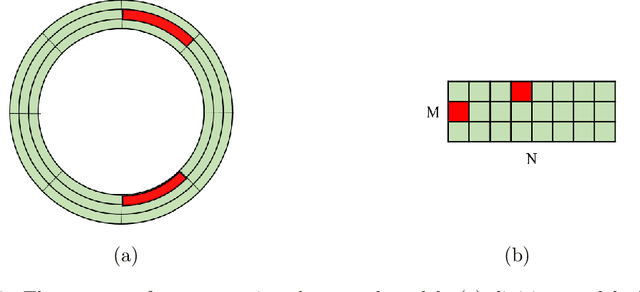Analysis for full face mechanical behaviors through spatial deduction model with real-time monitoring data
Paper and Code
Sep 27, 2021



Mechanical analysis for the full face of tunnel structure is crucial to maintain stability, which is a challenge in classical analytical solutions and data analysis. Along this line, this study aims to develop a spatial deduction model to obtain the full-faced mechanical behaviors through integrating mechanical properties into pure data-driven model. The spatial tunnel structure is divided into many parts and reconstructed in a form of matrix. Then, the external load applied on structure in the field was considered to study the mechanical behaviors of tunnel. Based on the limited observed monitoring data in matrix and mechanical analysis results, a double-driven model was developed to obtain the full-faced information, in which the data-driven model was the dominant one and the mechanical constraint was the secondary one. To verify the presented spatial deduction model, cross-test was conducted through assuming partial monitoring data are unknown and regarding them as testing points. The well agreement between deduction results with actual monitoring results means the proposed model is reasonable. Therefore, it was employed to deduct both the current and historical performance of tunnel full face, which is crucial to prevent structural disasters.
 Add to Chrome
Add to Chrome Add to Firefox
Add to Firefox Add to Edge
Add to Edge